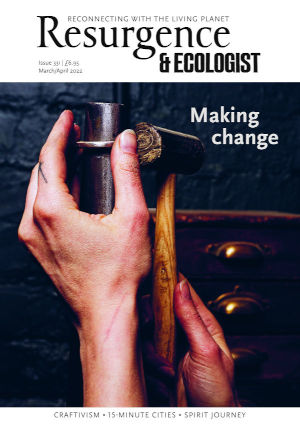David Graeber and David Wengrow’s new book is energetic, committed and kaleidoscopic – but also flawed. This presents us with a problem. Graeber died young, only a year ago. His masterwork, Debt, was inspiring in its time, if specious in parts. His work as an activist and a leader in the Occupy and social justice movements was unusual, and exemplary. His heart was always with the oppressed.
But precisely because Graeber was a good guy and left us only recently, there is a danger that for many people The Dawn of Everything will frame their understanding of the origins of inequality for a long time to come. With unfortunate consequences.
The question of the origins of inequality in human evolution and history matters a great deal for how we try to change the world in the here and now. One of the central arguments of The Dawn of Everything is that inequality, hierarchy and violence have always been possible ways of organising any human society. There was therefore no time, they say, before inequality. People – from the beginning of time – have always been able to choose between domination and freedom. Therefore people today can choose to escape what they call the ‘small-scale’ stuckness of state control, and become ‘free people’.
The crises we face, from climate breakdown to biodiversity collapse, are leading people all around the world to question how our societies are run and to look for possible alternatives. The payoff of Graeber and Wengrow’s position is that it allows them to argue that, with political will, we can have a society run by popular assemblies working through consensus. All of which sounds excellent, and liberatory.
The flaws in Graeber and Wengrow’s work have conservative implications, limiting which alternative societies seem possible. The very arguments they make are at odds with their own political project – and the evidence doesn’t fit what they are trying to say. They ignore the new remarkable scholarship that describes the adaptation, or ecological niche, our primate ancestors and early humans found for themselves – precisely by becoming equal.
Over the past 40 years, the scientific revolution has been remarkable, and there has been an enormous flowering of research in the field of human evolution. There are now many amazing new studies of non-human primates and primate behaviour, new archaeology of early humans, and new ethnographies of near-contemporary hunter-gatherers.
Dozens of long-term field research projects with different apes and monkeys now show, for each species, how a particular complex adaptation allows them to survive in a particular environment. That adaptation includes the details of how their staple diets, their alternative diets in bad times, their brains, hands, feet, stomachs, teeth, genitals, grunts, songs, dominance relationships, sharing relationships, child rearing, aggression, loving, grooming and group structure fit together.
Over time, several parts of a new adaptation came together to produce modern humans. The short story is that early humans were puny primates. To survive, they had to learn to share meat and vegetables, to share childcare and to share sexual joy. To do this, they had to discipline would-be bullies and transcend the dominance hierarchies of their primate ancestors. And for at least 200,000 years they lived in egalitarian societies where men and women were equal too.
Anthropologists and archaeologists have now constructed an entirely serviceable account of the origins of human inequality. Key figures here are Kent Flannery, Joyce Marcus and James C. Scott. This work is transforming the study of human evolution and human history. And the starting point may come as a surprise. It now seems that we became human by becoming equal. This is a remarkable and precious insight. But it is an insight that strikes at the very foundation of Graeber and Wengrow’s account.
Graeber and Wengrow do not deny that humans once lived by hunting and gathering. But they are deeply uninterested in the environment and the material bases of human existence. In ignoring these new studies, Graeber and Wengrow have set themselves against careful and now extremely well-documented arguments about comparative primate evolution and human adaptation. Their problem is that this material would upend their assertion that there was no ‘original’ human society, and make their arguments about choice seem rather silly.
An extended version of this article appears on The Ecologist website: tinyurl.com/dawn-review






